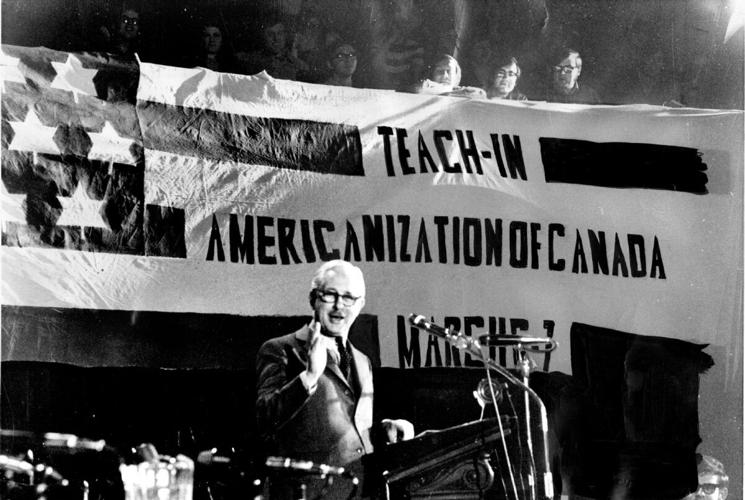Editor’s note: Readers who are already familiar with the background of this case can skip directly to the second section of the article.
The Tragic Case of Richard Bilkszto
Principal Richard Bilkszto was widely acclaimed by family, friends and colleagues for the care he showed towards his students over the course of his 24-year career. He was a specialist in adult education, focusing on schools where students were aged 18 and up, having not graduated on time or just recently arrived in Canada as immigrants. When Bilkszto retired in 2019, a superintendent from the Toronto District School Board (TDSB) commended his great work: “You have proven your excellence in equity, instruction, entrepreneurship, student engagement and breaking new ground for communities where chronic struggles, mental health and newcomer status often brought more frustration than success”.
After his retirement, Bilkszto continued to work as a contract principal for the TDSB, filling in for colleagues on leave. In the spring of 2021, he attended a Diversity, Equity and Inclusion (DEI) training workshop for TDSB administrators, facilitated by the KOJO Institute. During the first session, Bilkszto questioned the claim made by KOJO facilitators that Canada was a more racist country than the United States. According to the National Post, KOJO founder Kike Ojo-Thompson replied: “We are here to talk about anti-Black racism, but you in your whiteness think that you can tell me what’s really going on for Black people?”.
For the rest of the session, and throughout a follow-up session the week after, Bilkszto’s comment was repeatedly brought up as an example of the type of “resistance” that upholds white supremacy. She encouraged workshop participants to push back when they are “accosted by white supremacy”. Humiliated, Bilkszto fell into a mental health crisis the day after the second training session, and had to spend a month away from work – for which he filed a successful workers’ compensation claim. The TDSB, however, refused to investigate the bullying incident.
When he returned to work, the TDSB refused to reinstate him to the role he was in previously, and revoked a work contract he had been awarded. Adding insult to injury, the board disinvited Bilkszto from a graduation ceremony. In response to the TDSB’s inaction and harassment, Bilkszto filed a lawsuit against the school board.
Deeply affected by the traumatic circumstances, which began in 2021 with his humiliation at a DEI training session, and continued with the TDSB’s ostracism, Bilkszto took his own life.
Lucrative Lessons
This tragic incident began with a DEI workshop, a growing phenomenon which most readers are probably unfamiliar with, but which many have no doubt heard of. To illustrate the disturbing ideology behind the anti-racism industry in Canada, and to cast further light on this particular troubling incident, I have compiled the results of a brief investigation into the KOJO Institute.
Founded by Kike Ojo-Thompson in 1998, the KOJO Institute describes itself as a “leader in equity consulting”. KOJO provides various services to clients, including “training, consulting, critical conversations, coaching, mentoring, guest lectures, and keynotes”. Clients are said to benefit from an “innovative approach” which “reconstructs their paradigms and systems connected to equity, diversity and inclusion”.
In addition to in-person training sessions, the KOJO website offers three e-learning courses: Foundations of Equity ($250), Anti-Black Racism ($250), and a Complete Program ($400). The KOJO Institute’s clients include big names like Interac Corp., TD Bank, Loblaws, H & M, the RCMP and United Way. According to the National Post, the federal government has spent about $100,000 on service contracts with KOJO.
KOJO’s Crusade Against the Unbearable “Whiteness” of the Canadian Educational System
A personal passion of Kike Ojo-Thompson is addressing the alleged white supremacy in Canada’s educational system. To this end, KOJO has worked with various educational authorities in Ontario:
- Toronto District School Board (TDSB)
- Thames Valley District School Board (TVDSB)
- York Region School Board (YRDSB)
- Halton District School Board (HDSB)
- Halton Catholic District School Board (HCDSB)
- York Catholic District School Board (YCDSB)
- Peel District School Board (PDSB)
- Dufferin-Peel Catholic District School Board (DPCDSB)
- Elementary Teachers of Ontario (ETFO)
In an interview with the Elementary Teachers’ Federation of Ontario, Ojo-Thompson argues that “navigating the whiteness of the education system is a daily hardship” for educators in Canada. She maintains that the Canadian educational system is “not neutral”, but rather is imbued with “the dominance of whiteness”. She claims that this is the result of the long legacies of colonialism and slavery, which “established the idealization of whiteness and Africa as the ultimate other”.
For Ojo-Thompson, there is abundant evidence that Canada’s schools are rife with “anti-Blackness”:
“Disproportionate streaming into the lowest streams, over-representation in suspension and expulsion rates, lack of representation of Black staff in the school’s physical environment, lack of curricular inclusion of Black people and Black ways of knowing, over-representation of Black students pushed out of education (otherwise known as the drop-out rate), lack of Black student involvement in academic and leadership spaces, and over-representation in athletic programs”
All differential outcomes for black students, whether negative, such as the higher dropout rate, or even positive, as in the case of over-representation of black students in athletic programs, are proof of “anti-Blackness”. Alternative explanations are not entertained. The “lack of representation of black staff”, in a country which is only 4.3% black, is also automatically taken as evidence of racism.
The paucity of “Black ways of knowing” is presented as an obvious detriment of the Canadian curriculum, indicative of endemic “anti-Blackness”. In critical theory, “ways of knowing” refers to the knowledge systems of non-Western peoples. Many Canadian universities, for instance, have integrated “Indigenous ways of knowing” into their curriculum. According to an overview provided by the University of Toronto, Indigenous knowledge is personal, orally transmitted, experiential, holistic, and narrative-based.
Kike Ojo-Thompson’s advocacy for the integration of “Black ways of knowing” into the Canadian curriculum is a similar demand for the deconstruction of what adherents of critical theory call “Eurocentrism”, which “centers European, or White, ways of knowing as sole, central, or superior to all others.” If the demands made by anti-racism advocates like Kike Ojo-Thompson for the curricular overhaul are carried out to their logical conclusion, school curriculums would be unrecognizable. Our traditional Canadian model of education, centred on the mastery of written and spoken English, the reading of classic literature, the development of historical knowledge, and excellence in mathematics and science would be over.
Government Action Needed to Curtail Anti-Canadian DEI Training
The first phase of the ideology of diversity is exemplified in the song “Black and White”, originally written by David I. Arkin and Earl Robinson in 1954, in response to the Brown v. Board of Education Supreme Court decision, which desegregated public education in the United States. The most successful recording was the 1972 pop version by Three Dog Night, which reached the top of the Billboard Hot 100 chart. While the lyrics reflect what I would argue was a misplaced optimism over race relations, the message was ultimately one of togetherness, harmony and social cohesion:
The ink is black, the page is white
Together we learn to read and write
A child is black, a child is white
The whole world looks upon the sight, a beautiful sight
Today, we are faced with an ideology of Diversity, Equity and Inclusion (DEI), steeped in critical theory, which is overtly hostile against white people and seeks to deconstruct, rather than uplift, Canada.
The pushback against the constellation of equity consultancies spreading critical race theory in Canadian public institutions and workplaces should begin with the KOJO Institute. While I echo the demand for an inquiry into the death of Richard Bilkszto, we must go further.
The KOJO Institute’s message that Canadian schools must be purged of the “dominance of whiteness” is nothing less than a demand for the dismantling of our traditional model of education, and has no place being taught to school authorities. As such, all Ontario school boards, along with the Elementary Teachers of Ontario, should immediately sever ties with the KOJO Institute. Since the state should not be directing funds towards the promotion of hostility towards any racial group, all government contracts with KOJO should be cancelled. Corporations, which have a duty towards the Canadian people, should also cancel their contracts with a consultancy so clearly hostile towards the country’s majority.
Will Premier Ford have the courage to begin this process by cancelling all provincial contracts with the KOJO Institute?
All content on this website is copyrighted, and cannot be republished or reproduced without permission.
Share this article!




The truth does not fear investigation.
You can help support Dominion Review!
Dominion Review is entirely funded by readers. I am proud to publish hard-hitting columns and in-depth journalism with no paywall, no government grants, and no deference to political correctness and prevailing orthodoxies. If you appreciate this publication and want to help it grow and provide novel and dissenting perspectives to more Canadians, consider subscribing on Patreon for $5/month.
- Riley Donovan, editor